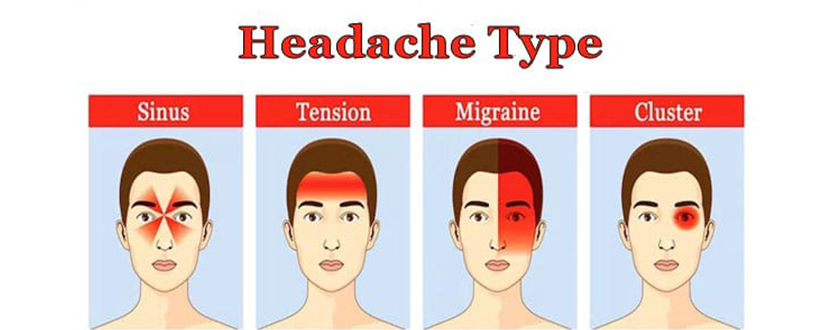
Tension type headache (TTH) is a common type of headache
that is characterized by mild to moderate pain that feels like a tight band
around the head. It is the most common type of primary headache disorder and
affects up to 78% of the general population at some point in their life. TTH is
often referred to as a stress headache because it is commonly associated with
stress, anxiety, and tension.
Symptoms of Tension Type Headache
The symptoms of TTH can vary from person to person, but
typically include a dull, aching pain that feels like pressure or tightness
around the forehead, temples, or back of the head. The pain is usually
bilateral (on both sides of the head) and is described as mild to moderate in
intensity. Some people may also experience sensitivity to light or sound, as
well as muscle tension in the neck and shoulders.
Causes of Tension
Type Headache
The exact causes of TTH are not well understood, but it is
believed to be related to muscle tension and stress. TTH can be triggered by a
number of factors, including:
·
Emotional stress
·
Physical stress, such as poor posture or
repetitive strain injuries
·
Lack of sleep or poor quality sleep
·
Skipping meals or eating irregularly
·
Caffeine withdrawal
·
Hormonal changes, such as those associated with
menstruation
Diagnosis of Tension
Type Headache
TTH is typically diagnosed based on a patient's symptoms and
medical history. A doctor may also perform a physical examination to rule out
other possible causes of the headaches, such as a migraine or a more serious
medical condition.
Treatment of Tension
Type Headache
The treatment of TTH depends on the severity and frequency
of the headaches, as well as the underlying causes. Some common treatment
options include:
Pain relievers:
Over-the-counter pain relievers, such as ibuprofen or acetaminophen, may be
effective in relieving the pain associated with TTH. For more severe headaches,
prescription-strength pain relievers may be necessary.
Muscle relaxants:
These medications can help to reduce muscle tension in the neck and shoulders,
which may be contributing to the headache.
Stress reduction:
Stress management techniques, such as relaxation exercises, meditation, or
yoga, may be helpful in reducing the frequency and severity of TTH.
Physical therapy:
If poor posture or muscle tension is contributing to the headaches, physical
therapy may be recommended to help improve posture and reduce muscle tension.
Counseling: For some people, TTH may be related to emotional
or psychological stress. Counseling or psychotherapy may be helpful in managing
stress and reducing the frequency of headaches.
Prevention of Tension
Type Headache
Preventing TTH often involves identifying and managing
triggers. Some tips for preventing TTH include:
Managing stress:
Stress reduction techniques, such as meditation or yoga, can help to reduce the
frequency and severity of TTH.
Practicing good
posture: Maintaining good posture, especially when sitting or working at a
computer, can help to prevent muscle tension in the neck and shoulders.
Getting enough sleep:
Ensuring that you get enough restful sleep each night can help to reduce the
likelihood of developing TTH.
Eating regularly:
Eating regular meals and staying hydrated can help to prevent TTH triggered by
skipped meals or dehydration.
Limiting caffeine:
Gradually reducing caffeine intake can help to prevent TTH triggered by
caffeine withdrawal.
In conclusion, tension type headache is a common primary
headache disorder that is often associated with stress and muscle tension.
While the exact causes of TTH are not well understood, there are a number of
effective treatments available, including pain relievers, muscle relaxants,
stress reduction techniques, physical therapy, and counseling.
Symptoms of Tension
Type Headache
Copyright @ Dr. Ashitabh Tiwari Designed By Persistent Infotech